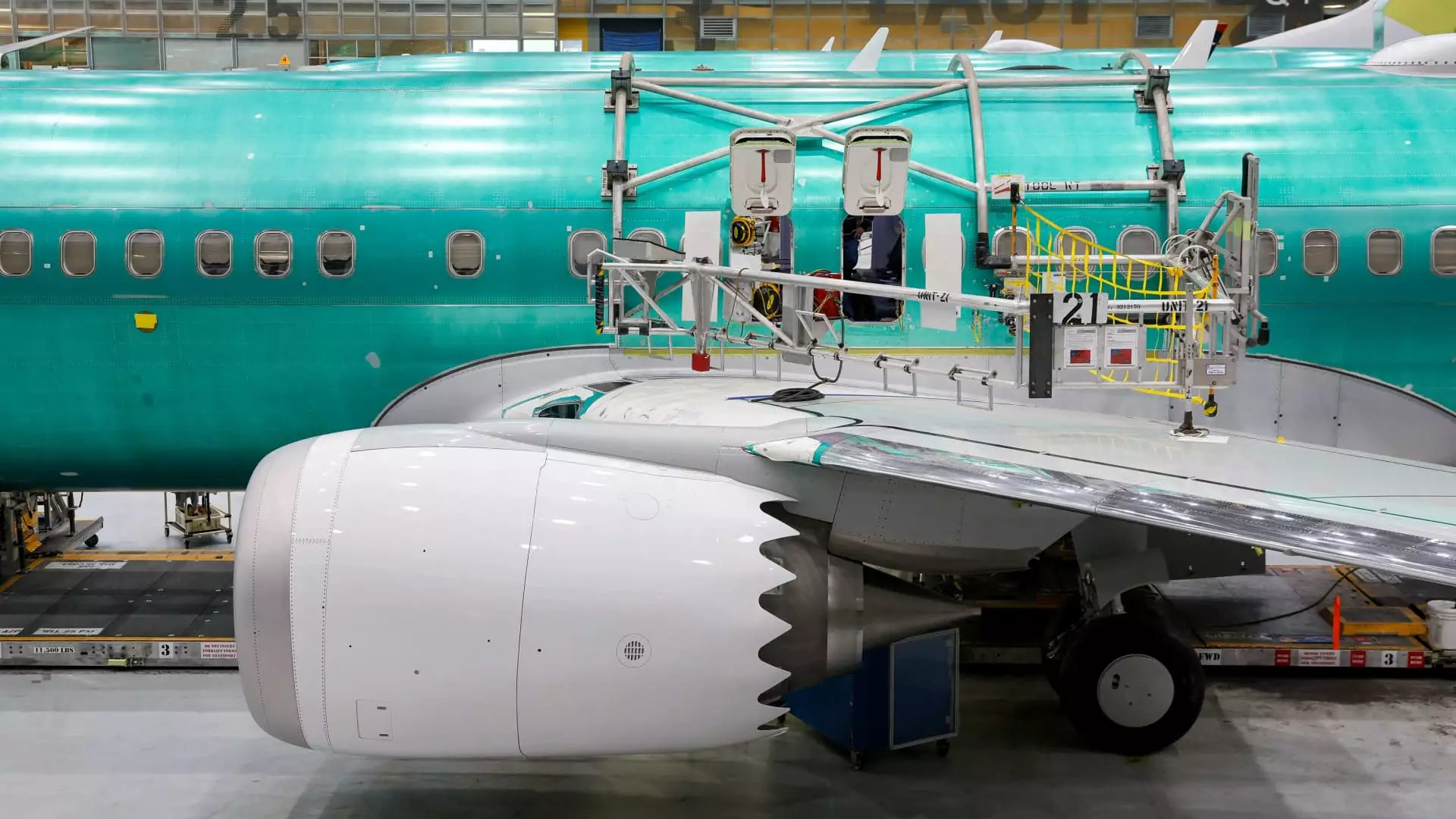Boeing, one of the largest aerospace manufacturers in the world, finds itself on a tumultuous path to recovery after a series of events that have cast doubt on its safety and quality assurances. In particular, the incident involving a fuselage panel from an Alaska Airlines’ Boeing 737 Max 9 aircraft in midair marked a pivotal moment for the company. Although the incident did not result in serious injuries, it exacerbated existing concerns about the integrity of its aircraft manufacturing processes and highlighted systemic quality issues that have plagued the company for years.
The fuselage panel incident effectively reignited safety scrutiny of Boeing, prompting a federal investigation by the National Transportation Safety Board (NTSB). The investigation revealed that essential bolts were absent in the construction of the aircraft, raising critical questions about the inspection protocols and quality control processes at Boeing’s Renton factory. With the company’s stock price dropping over 30% in the last year—a stark contrast to the S&P 500’s nearly 27% rise—Boeing’s position as a leading aerospace manufacturer is under intense scrutiny.
These challenges are compounded by the public’s memory of previous fatal accidents involving the 737 Max, which resulted in the tragic loss of 346 lives. As a result, Boeing faces not just reputational damage but also regulatory hurdles and increased oversight from the Federal Aviation Administration (FAA). The call for change is becoming urgent, as evidenced by FAA Chief Mike Whitaker’s warning that enhanced scrutiny will persist until a “fundamental cultural shift” within Boeing is realized.
In response to mounting challenges, Boeing’s leadership has initiated a series of strategic changes, including a significant reshuffling in executive ranks. The appointment of Kelly Ortberg, a veteran in the aerospace industry, as the new CEO signals an intent to forge a new path forward. Ortberg’s top priority has been to stabilize production, ensuring that quality is prioritized over quantity—an approach that he emphasized during his first earnings call.
Following a two-month strike by machinists that ended recently, Boeing has had to contend with revived labor relations while striving to improve efficiency. The strike demonstrated the workforce’s commitment to better working conditions and compensation, yet it also highlighted the fragility of Boeing’s production capabilities. With scheduled deliveries slipping further behind competitors like Airbus, it is imperative that Boeing refocus its efforts on core competencies, ensuring that factories can produce aircraft safely and efficiently.
One of the most significant aspects of Boeing’s recovery plan is the call for an ingrained cultural shift towards prioritizing safety and quality. The newly implemented random quality audits and management sessions for employee feedback show a proactive approach to employee engagement. By listening to the workforce and addressing concerns directly, Boeing aims to restore confidence internally and externally.
However, the task ahead is daunting. A cultural transformation within an organization as large and historically successful as Boeing requires more than just changes at the executive level; it necessitates a bottom-up approach involving all employees. The company must instill a safety-first mentality that shifts the focus away from profit and toward responsible manufacturing practices, which is crucial for long-term sustainability.
Financially, Boeing has faced crippling losses amounting to over $30 billion since 2019. The challenges of maintaining a competitive edge in an evolving aerospace market are further intensified by the company’s need to regain investor and public trust. Recent capital-raising efforts and a proposed workforce reduction of 10% indicate that Boeing is taking aggressive steps to stabilize its financial footing.
As the industry gradually emerges from the pandemic, the demand for new aircraft is rising, presenting Boeing with both opportunities and challenges. The new leadership under Ortberg carries the responsibility of ensuring that production ramps up without compromising quality. If successful, Boeing could regain its stature as a leader in the aerospace industry.
While Boeing has embarked on a critical rebuilding year, the effectiveness of its strategies will depend on the company’s ability to foster a culture of safety and operational excellence. The road ahead is fraught with challenges, but with decisive leadership and a renewed commitment to quality, Boeing can forge a path toward recovery and stability in a highly competitive market.

